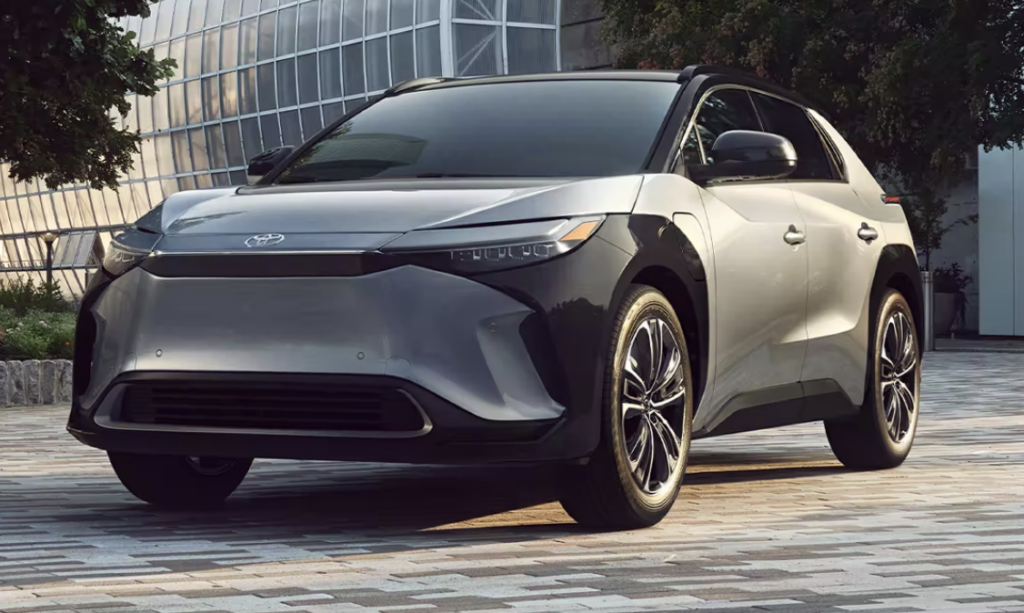Toyota Changing Its Mind About Making Electric Vehicles?
Toyota is changing its electric vehicle transition strategy and pausing development on some planned EVs in order to focus on revamping its only existing model, the bZ4X.
This article is more than 2 years old
Toyota is considering a reboot of its electric car strategy. The decision comes as the company aims to reduce costs and better compete in a booming market it was slow to enter. If adopted the proposal, which is currently under review, would result in a major shift for the Japanese automaker. It would also rewrite the $38 billion EV rollout plan the vehicle manufacturer announced last year in a bid to take on industry giant, Tesla.
According to Reuters, a group working within Toyota has been tasked with outlining the reboot plans. The team will also oversee improvements to the company’s existing electric vehicle platform as well as new architecture. For now, the carmaker has suspended work on some of the 30 EV projects it announced in December. This includes the Compact Cruiser crossover and the battery-electric Crown, according to internal documents.
Meanwhile, Toyota said it was committed to carbon neutrality but declined to mention specific initiatives. Responding to questions from Reuters, the company said to achieve its environmental goals its technology, as well as the work it’s been doing with several partners and suppliers, is essential. However, the four sources who revealed the firm’s electric vehicle reboot initiative, declined to be identified because the plans have not been made public.
While the revamp might be good for gaining a competitive advantage, it could slow down Toyota’s rollout of EVs already on the drawing board. But it would also give the company a chance to compete with a more efficient manufacturing process, as industry-wide EV sales run past the Japanese car maker’s earlier projections Additionally, it would address criticism by green investors who say the firm, once hailed by environmentalists, has been too slow to embrace electric vehicles.
As part of the review, Toyota is considering a successor to its electric vehicle technology called e-TNGA. Unveiled in 2019, it would allow the company to bring down costs. The bZ4X crossover, the first EV based on e-TNGA, hit the market earlier this year. But its launch was marred by a recall that forced the carmaker to suspend production after discovering that there was a risk the car’s wheels could come loose.

Subaru Corp, of which Toyota owns a fifth, also had to recall units of the related Solterra model that it jointly developed with the car maker. A notice, submitted to Japan’s transport ministry in June, said that sharp turns and sudden braking could cause a hub bolt to loosen, raising the risk of a wheel coming off the vehicle. In a filing via Reuters, the automaker told the ministry it would make sure the hub bolts were replaced and properly tightened in new versions of the bZ4X.
Moreover, Toyota said it identified and fixed a potential problem with airbags in the car. Some had been installed incorrectly at the factory and were at risk of failing or causing injury due to the placement of a strap inside the assembly. Fortunately, all the faults were rectified and the company was able to resume production earlier this month.






